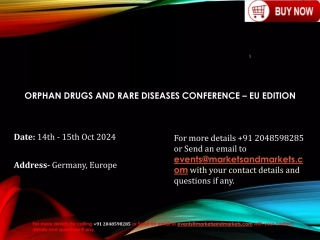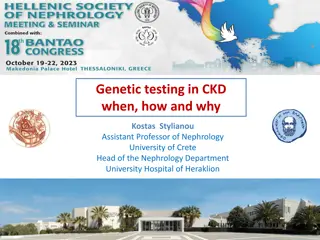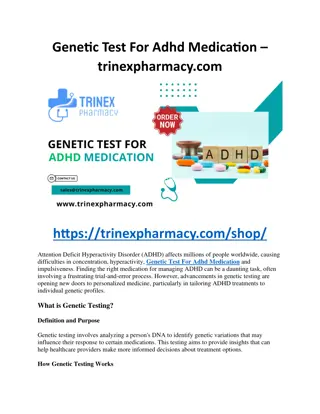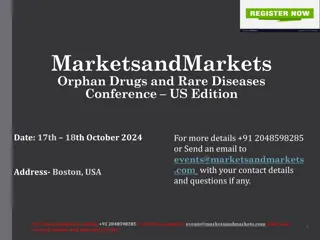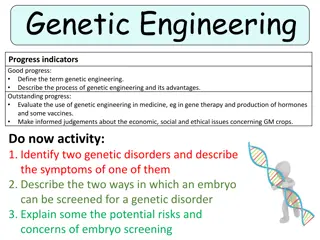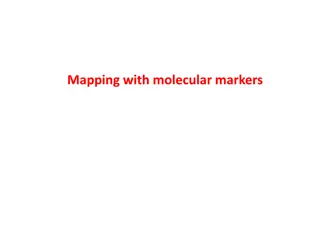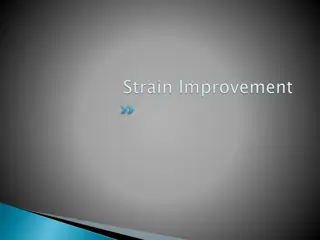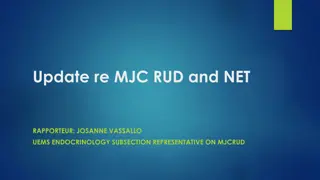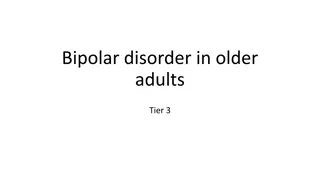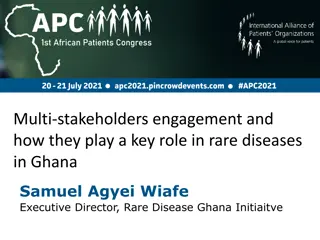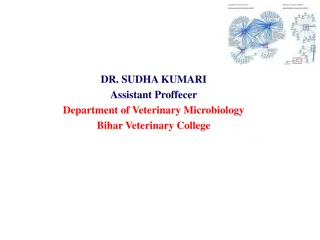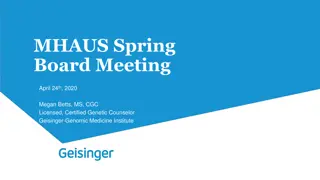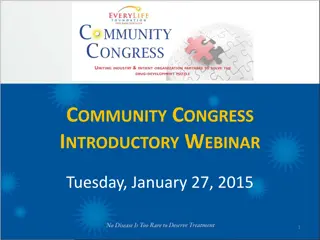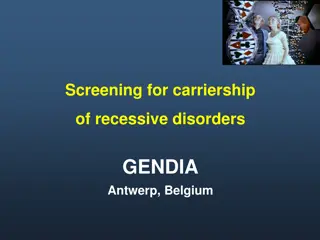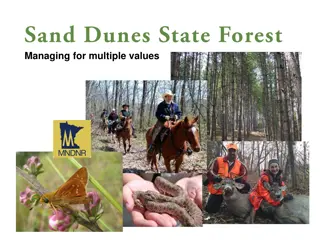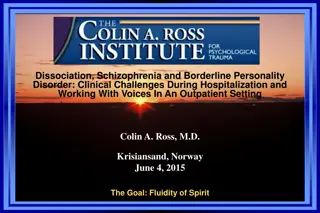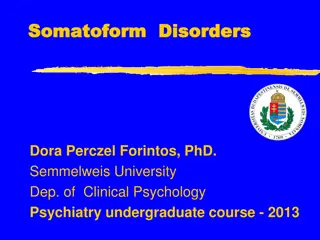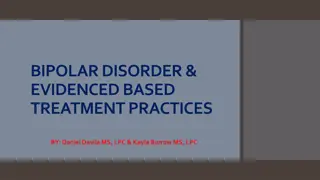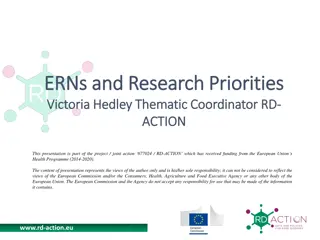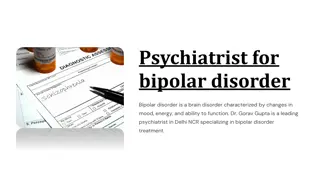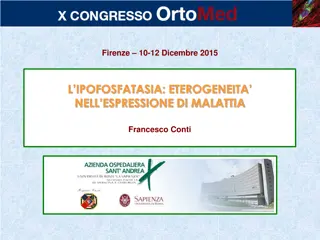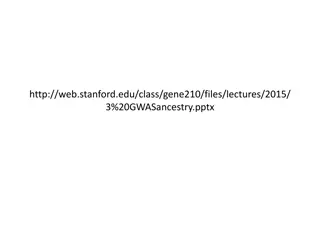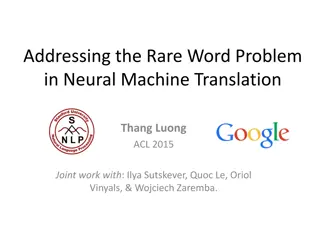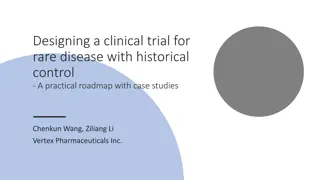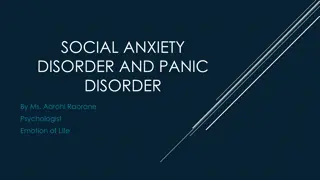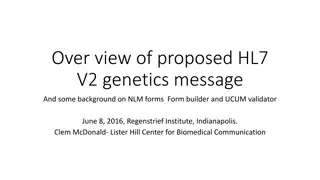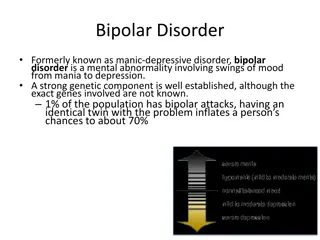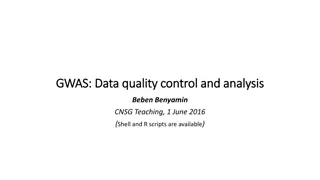Upcoming Event on Orphan Drugs and Rare Diseases– | 14th – 15th October 2024
Join us at our MarketsandMarkets 5th Annual Orphan Drugs and Rare Diseases Conference in Germany, Europe, for a groundbreaking exploration of the recent advances in developing life-saving therapies, technologies in diagnosing, and strategies to enhance orphan drug development.\n\nEnquire Now @ https
1 views • 5 slides
Understanding Wolfram Syndrome: Symptoms and Implications
Wolfram Syndrome, also known as DIDMOAD, is a rare genetic disorder affecting about 1 in 160,000-770,000 people worldwide. It is characterized by the presence of Diabetes Insipidus, Diabetes Mellitus, Optic Atrophy, and Deafness. The primary genetic mutation in the WFS1 gene leads to various symptom
0 views • 22 slides
Genetic Testing in Chronic Kidney Disease (CKD): Insights and Applications
Genetic testing plays a crucial role in identifying inherited kidney diseases, with around 15% of CKD cases having monogenic causes. Despite a high percentage of patients reporting a family history of CKD, Mendelian causes only account for about 10% of adult ESRD cases. Understanding the genetic bas
1 views • 52 slides
Rare Isotope Beams from FRIB - Facility Overview and Operations
FRIB (Facility for Rare Isotope Beams) is supported by the U.S. Department of Energy and Michigan State University. It utilizes advanced techniques for rare isotope beam formation, offering insights into nuclear physics. The facility operates with high beam power, serving various scientific experime
0 views • 15 slides
Genetic Test for Adhd Medication - trinexpharmacy.com
Attention Deficit Hyperactivity Disorder (ADHD) affects millions of people worldwide, causing difficulties in concentration, hyperactivity, Genetic Test For Adhd Medication and impulsiveness. Finding the right medication for managing ADHD can be a daunting task, often involving a frustrating trial-a
1 views • 6 slides
Orphan Drugs and Rare Diseases – US Edition | 17th - 18th October 2024
Join us at our MarketsandMarkets Orphan Drugs and Rare Diseases Conference in Boston, USA for a groundbreaking exploration of the recent advances in developing life-saving therapies, technologies in diagnosing, and strategies to enhance orphan drug development.\n\nRegister Now @ \/\/events.marketsan
1 views • 5 slides
Overview of Human Genetic Disorders
Human genetic disorders encompass a range of conditions, from recessive disorders like cystic fibrosis to dominant disorders such as Huntington's disease. Examples include cystic fibrosis, Huntington's disease, and sickle-cell anemia. Understanding genetic disorders involves research and awareness o
0 views • 10 slides
Understanding Anxiety Disorders and Related Conditions
Explore the distinguishing features of anxiety disorders such as generalized anxiety disorder, panic disorder, and phobias, along with insights into obsessive-compulsive disorder (OCD) and posttraumatic stress disorder (PTSD). Delve into the impact of conditioning, cognition, and biology on these co
2 views • 46 slides
Unraveling a Puzzling Blood Disorder: A Genetic Inquiry
A Chicago physician, Dr. James Herrick, encountered a mysterious blood disorder in a West Indies student back in 1904. This condition, characterized by fatigue, joint pain, yellowish eyes, and an affected family history, poses a genetic inheritance puzzle. Investigations into Mendelian inheritance p
0 views • 16 slides
Exploring Genetic Engineering: From Basics to Applications
Genetic engineering involves altering the genetic material of organisms to achieve desirable traits. This process entails cutting out specific genes from one organism and transferring them to another. In medicine, genetic engineering finds applications in gene therapy, hormone production, and vaccin
0 views • 12 slides
Understanding Genetic Markers in Molecular Mapping
Genetic markers play a crucial role in gene mapping within molecular biotechnology. They are fragments of DNA associated with specific genomic locations, aiding in identifying DNA sequences and analyzing genetic variation. Various types of genetic markers such as RFLP, SSR, and SNP offer insights in
1 views • 26 slides
Understanding Genetics: Mutations, Chromosomal Aberrations, and Genetic Engineering
Genetic mutations can be harmless, harmful, or beneficial, leading to variations within a species. Examples of gene mutations and chromosomal aberrations, like Trisomy 21, illustrate genetic abnormalities. The increase in Down Syndrome cases with maternal age highlights a maternal age effect. Geneti
0 views • 17 slides
Exploring Genetic Engineering: A Journey into Manipulating Organisms
Delve into the world of genetic engineering, where organisms' genetic makeup is altered for various purposes. Discover the process of modification, the history of genetic manipulation, and the impact of genetically modified organisms on society and science.
0 views • 20 slides
Improving Microbial Productivity and Characteristics for Industrial Applications
Efforts to enhance the productivity of natural isolates for commercial products involve genetic modifications through mutation, genetic recombination, and genetic engineering techniques. Desired characteristics include genetic stability, efficient production, versatility in carbon sources, and ease
1 views • 25 slides
Updates on European Training Requirements for Rare Diseases and Neuroendocrine Neoplasia Medicine
Comprehensive updates on European training requirements for rare diseases, rare adult solid cancers, and neuroendocrine neoplasia medicine. Initiatives include syllabi, competencies, and collaborations with international networks for advancements in the field.
0 views • 6 slides
Understanding Bipolar Disorder in Older Adults
Bipolar disorder in older adults can have a later onset, often after the age of 50, with episodes of mania and depression. Recognizing symptoms like excessive energy, inability to sleep, and cognitive impairment is crucial. Late-onset bipolar disorder differs from early-onset in familial illness rat
1 views • 12 slides
Stakeholder Engagement in Rare Diseases: Key Role in Ghana
Rare diseases in Ghana present significant challenges such as lack of awareness, insufficient data, delayed diagnosis, and limited treatment options. To address these issues, collaborative efforts involving multiple stakeholders are essential. Actions are needed to enhance health education, improve
0 views • 9 slides
Understanding Bacterial Transformation in Molecular Biology
Transformation in molecular biology is a process where genetic material is altered by the uptake of exogenous DNA. It involves the direct incorporation of genetic material into a cell, leading to genetic changes. This phenomenon was first demonstrated by Frederick Griffith in 1928. The process of tr
1 views • 25 slides
Understanding Genetic Counselors and the NSGC
Genetic counselors play vital roles in healthcare by assisting patients with genetic conditions, advocating for their needs, educating providers, conducting research, and influencing public policy. The National Society of Genetic Counselors (NSGC) supports genetic counselors in their professional en
3 views • 12 slides
EveryLife Foundation for Rare Diseases Introductory Webinar Overview
The EveryLife Foundation for Rare Diseases held an introductory webinar providing insights into their mission, foundation overview, staff members, board composition, and initiatives like advocating for biotechnology innovation and rare disease treatments through policy and law changes. The foundatio
0 views • 31 slides
Effective Strategies for Children with Developmental Language Disorder, Sensory Processing Disorder, and Fine Motor Delays
Children with Developmental Language Disorder (DLD), Sensory Processing Disorder (SPD), and Fine Motor Delays often have accompanying sensory and fine motor deficits. Research indicates that addressing sensory processing deficits can significantly benefit children with DLD, ADHD, autism, and other d
0 views • 61 slides
Genetic Carrier Screening for Recessive Disorders by GENDIA, Antwerp, Belgium
Explore the world of genetic carrier screening offered by GENDIA in Antwerp, Belgium. Learn about prenatal screening for various genetic disorders, including Down syndrome and severe monogenic disorders. Discover the frequency of common recessive disorders and the severity of genetic diseases. Uncov
0 views • 17 slides
Managing for Multiple Values in Forest Conservation
Forest management for multiple values involves producing timber, providing recreation, protecting watersheds, and perpetuating rare species. Covering over 11,000 acres with a diverse ecosystem, the area includes oak woodlands, savannas, and prairies. With a shift towards conserving rare features and
0 views • 17 slides
Understanding Schizophrenia, Dissociation, and Borderline Personality Disorder
Clinical challenges and treatment approaches for schizophrenia, dissociative identity disorder, and borderline personality disorder are discussed in this content. The genetic and environmental factors influencing these conditions are explored, along with insights from twin studies and treatment effi
0 views • 23 slides
Understanding the Key Articles of the Nagoya Protocol on Access to Genetic Resources and Benefit-Sharing
The Nagoya Protocol aims to promote fair sharing of benefits from genetic resources utilization for conservation efforts. It encompasses access, technology transfer, funding, and respect for rights over resources and technologies. The protocol applies to genetic resources, traditional knowledge, and
1 views • 19 slides
Understanding Somatoform Disorders: Symptoms, Diagnosis, and Treatment Options
Somatoform disorders are characterized by physical symptoms that mimic general medical conditions without an underlying medical or mental disorder. Patients often exhibit somatic symptoms without an organic basis, have poor insight, and do not find reassurance helpful. Common types include somatizat
0 views • 46 slides
Evolutionary Computation and Genetic Algorithms Overview
Explore the world of evolutionary computation and genetic algorithms through a presentation outlining the concepts of genetic algorithms, parallel genetic algorithms, genetic programming, evolution strategies, classifier systems, and evolution programming. Delve into scenarios in the forest where gi
0 views • 51 slides
Challenges in Ensuring Critical Mineral Supply for Japan's Sustainable Industrial Activities
Japan faces challenges in securing critical minerals for sustainable industrial activities due to market failures in rare metals trade, lack of information symmetry in supply chains, and the small market size of rare metals. The Government of Japan implements policy measures such as overseas resourc
0 views • 15 slides
Understanding Bipolar Disorder and Evidence-Based Treatment Practices
This presentation by Daniel Davila, MS, LPC, and Kayla Burrow, MS, LPC delves into the complexities of bipolar disorder, potential crisis outcomes, and mental illness management through evidenced-based treatment practices. Topics covered include bipolar diagnosis, assessing disorder lethality, treat
0 views • 44 slides
Advancing Rare Disease Research and Healthcare Initiatives
This presentation highlights the objectives, thematic priorities, and actions of the RD-ACTION project funded by the European Union's Health Programme. It focuses on supporting the Orphanet database, promoting multi-stakeholder debates on rare diseases, and enhancing data sharing and healthcare path
0 views • 16 slides
Psychiatrist for bipolar disorder
Bipolar Disorder is a brain disorder characterized by extreme mood changes; manic or hypomanic episodes and mixed episodes with depressive episodes. In the following blog post, the best psychiatrist for bipolar disorder treatment, Dr. Gorav Gupta, el
0 views • 7 slides
Understanding Heterogeneity in Hypophosphatasia: A Case Study in Phenotypic Variability
This case study explores the diverse expression of hypophosphatasia in a Caucasian female patient, highlighting the challenges in diagnosis and treatment. The patient presented with chronic pain, fractures, myopathy, and dental issues, underscoring the complexity of genotype-phenotype correlations i
0 views • 23 slides
Understanding Genetic Variants Associated with Bipolar Disorder and Schizophrenia
This material covers the genetic variants linked to bipolar disorder (BD) and schizophrenia, focusing on the rs1064395 variant in the neurocan gene (NCAN). The study analyzed a cohort of 682 patients with BD and 1300 controls to identify associations with the disorder. The presentation emphasizes th
0 views • 22 slides
Addressing the Rare Word Problem in Neural Machine Translation
Thang Luong and team addressed the rare word problem in Neural Machine Translation by proposing an approach to track the origins of rare words in target sentences. They utilized unsupervised alignments and relative indices in the training data and implemented a post-processing method for test transl
0 views • 21 slides
Practical Guidelines for Designing Clinical Trials in Rare Diseases
This comprehensive content delves into the strategic planning of clinical trials for rare diseases, emphasizing the utilization of historical control data and the challenges associated with it. It discusses the significance of historical control in trial design, the evolving landscape of rare diseas
0 views • 18 slides
Enhancing Word Representation for Rare Words by Xiao Wenyi
This article discusses methods for improving word representation for rare words, such as the count-based Skip-gram by Mikolov and the predict-based GloVe by Pennington. It explores the concepts of Skip-gram, GloVe, and issues faced by existing models in handling rare words.
0 views • 22 slides
Understanding Social Anxiety Disorder and Panic Disorder
Social anxiety disorder and panic disorder are common mental health conditions characterized by intense feelings of fear and anxiety in social situations. Individuals with these disorders may experience physical symptoms such as trembling, racing heart, and upset stomach, along with emotional signs
0 views • 18 slides
Overview of HL7 V2 Genetics Messaging and LOINC Genetic Testing Codes
This content delves into the proposed HL7 V2 genetics message, NLM forms builder, UCUM validator, and the current state of genetic testing codes in LOINC. It discusses the types of molecular genetic tests present in LOINC and the evolution towards newer genetic tests. The content also covers how LOI
0 views • 21 slides
Understanding Mental Health Disorders: Bipolar Disorder, Anxiety Disorders, & More
Exploring various mental health disorders such as Bipolar Disorder, Anxiety Disorders, Generalized Anxiety Disorder, Panic Disorder, and Phobic Disorders. Learn about their symptoms, prevalence, and impacts on individuals' lives.
0 views • 41 slides
Understanding GWAS: A Brief Overview of Genetic Association Studies
GWAS, or Genome-Wide Association Studies, are a method used to map genes associated with traits or diseases by analyzing genetic markers throughout the genome. This process involves statistically testing the association between SNPs and traits using regression or chi-squared tests in a hypothesis-fr
0 views • 19 slides
